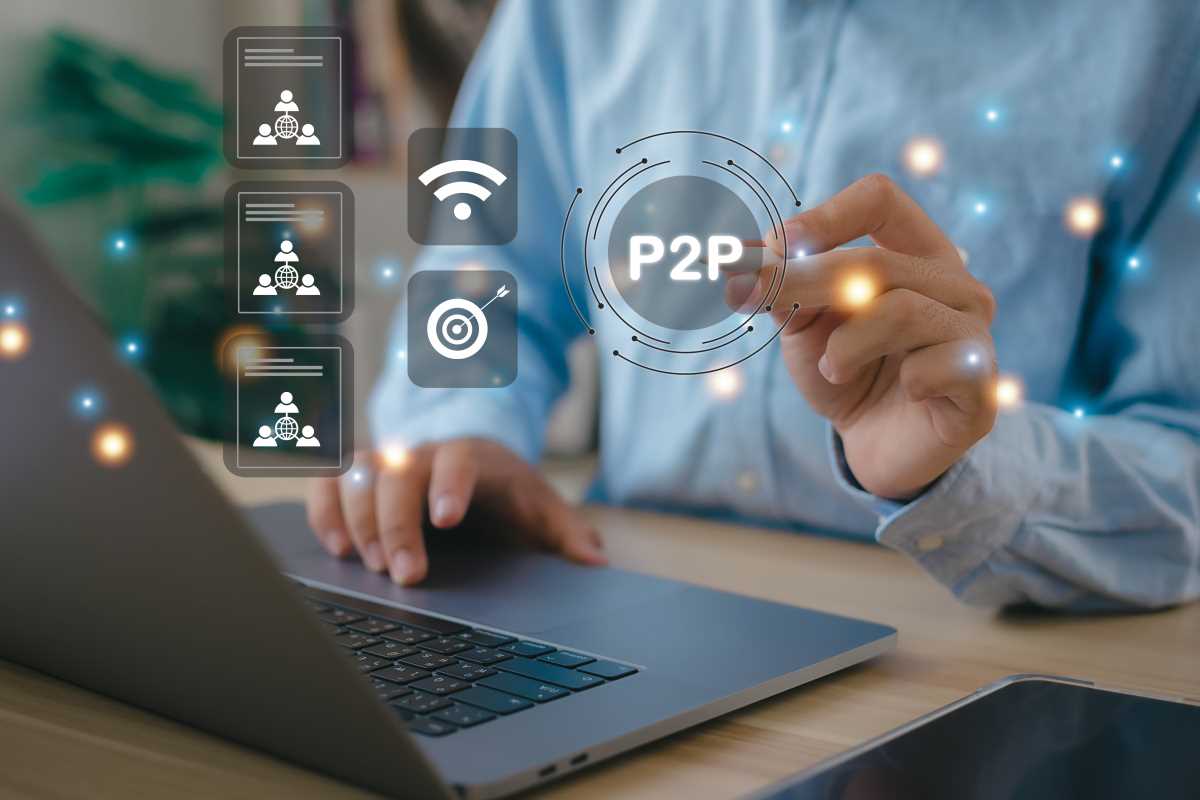The world of blockchain is rapidly growing and evolving, transforming industries like finance, healthcare, supply chain management, and even art. Once considered a niche technology for cryptocurrency enthusiasts, blockchain now offers diverse career opportunities that appeal to professionals from various backgrounds. Whether you’re a tech guru, a business strategist, or a creative problem solver, the blockchain industry might have the perfect role for you.
Here, we’ll explore some of the most exciting careers in the blockchain space, the skills needed to land these roles, and how they contribute to the innovation and growth of this transformative technology.
1. Blockchain Developer
A blockchain developer is one of the most in-demand roles in the blockchain industry. These professionals are responsible for creating and maintaining blockchain networks, decentralized applications (dApps), and protocols. It’s a highly technical role that requires a deep understanding of how blockchain works and the ability to write efficient, secure code.
Skills Required:
- Proficiency in programming languages like Solidity, JavaScript, Python, or C++.
- Knowledge of cryptography, data structures, and algorithms.
- Familiarity with blockchain platforms such as Ethereum, Hyperledger, or Binance Smart Chain.
- Problem-solving skills and an analytical mindset.
What They Do:
Blockchain developers might work on anything from creating a cryptocurrency wallet to designing a supply chain tracking system powered by blockchain. For instance, they could help develop a system that ensures transparency in food sourcing by tracing every step of a product’s journey from farm to table.
Career Path:
Blockchain developers often start as software developers or engineers before specializing in blockchain. Over time, they can move into senior positions like lead blockchain engineer or CTO of blockchain-focused companies.
2. Smart Contract Developer
Smart contracts are self-executing agreements embedded within blockchain networks. They automatically enforce the terms of an agreement when predefined conditions are met, effectively cutting out intermediaries. Smart contract developers focus on writing and testing these contracts to ensure trust and efficiency.
Skills Required:
- Proficiency in Solidity (Ethereum’s smart contract programming language) or Rust (used for Solana).
- Expertise in blockchain development and decentralized applications.
- Strong understanding of debugging and testing.
What They Do:
Smart contracts have applications in numerous sectors. A smart contract developer might write code for an insurance payout system that automatically releases funds when a customer files a valid claim. They ensure that these contracts are tamper-proof and function reliably.
Career Path:
Smart contract developers often follow a similar trajectory to blockchain developers but focus their expertise on this niche. They might eventually become blockchain architects or consultants specializing in smart contract technology.
3. Blockchain Architect
Blockchain architects are like the building designers of this tech ecosystem. They design the overall structure and blueprint of blockchain systems, ensuring that these systems meet the technical and business needs of an organization. It's a high-level, strategic role that combines technical expertise with managerial insight.
Skills Required:
- Advanced understanding of blockchain frameworks and consensus protocols.
- System design experience and knowledge of cloud computing.
- Strong leadership and project management skills.
- Ability to align technical solutions with business goals.
What They Do:
Imagine a banking institution wants to implement a blockchain to streamline cross-border transactions. The blockchain architect would design the entire system, addressing scalability, security, and performance challenges. They create the roadmap for developers and engineers to follow.
Career Path:
Blockchain architects often come from senior developer or engineering roles. Over time, they may become chief architects or executives driving blockchain adoption within large organizations.
4. Blockchain Project Manager
Not all blockchain jobs require coding. Blockchain project managers play an essential role in ensuring that blockchain projects are completed efficiently, on time, and within budget. These professionals bridge the gap between technical teams, business executives, and clients, ensuring clear communication and smooth workflows.
Skills Required:
- Strong project management experience (agile, waterfall, etc.).
- Familiarity with blockchain concepts and use cases.
- Excellent communication and problem-solving abilities.
- Ability to manage cross-functional teams.
What They Do:
Picture a company developing a blockchain-powered voting platform. The project manager ensures that developers, UX designers, legal experts, and marketing specialists work in harmony to bring the product to market. They track milestones, coordinate tasks, and quickly resolve any bottlenecks.
Career Path:
Blockchain project managers might come from general tech project management roles. Success in this position could lead to roles like product manager for blockchain solutions or even executive roles in blockchain companies.
5. Blockchain Consultant
Blockchain consultants help businesses understand how blockchain can solve their problems. They analyze an organization’s goals and challenges, propose tailored blockchain solutions, and guide the implementation process.
Skills Required:
- Deep knowledge of blockchain technology, frameworks, and protocols.
- Strong business acumen and understanding of industry-specific challenges.
- Skills in presenting complex ideas in simple terms to non-technical stakeholders.
- Experience in consulting or strategic planning.
What They Do:
For example, imagine a shipping company struggling with inefficiencies in tracking shipments. A blockchain consultant might suggest implementing a blockchain-enabled supply chain solution to reduce paperwork and improve visibility. They assess the feasibility, design a roadmap, and recommend the best platforms and partners.
Career Path:
Blockchain consultants often come from business consulting or technical roles. Over time, they can become specialized, consulting for top companies in sectors like banking, healthcare, or logistics.
6. Cryptocurrency Analyst
With the growing popularity of cryptocurrencies, the role of cryptocurrency analysts has emerged. These professionals study market trends, evaluate investment opportunities, and provide forecasts that guide investors and businesses.
Skills Required:
- Background in finance, economics, or data analysis.
- Strong understanding of blockchain and cryptocurrency markets.
- Analytical skills and the ability to interpret complex data.
- Familiarity with tools like Python, Excel, and blockchain explorers.
What They Do:
A cryptocurrency analyst might evaluate the performance of Bitcoin, Ethereum, and altcoins, providing clients with actionable advice. Investment firms might rely on these analysts to make decisions about adding cryptocurrencies to their portfolios.
Career Path:
Many analysts start with roles in traditional finance before specializing in crypto. Over time, they might branch into portfolio management or establish their own cryptocurrency-focused ventures.
7. UX/UI Designer for Blockchain Platforms
Blockchain applications can feel complex and intimidating for the average user. UX/UI designers ensure these platforms are user-friendly and visually appealing, playing a critical role in driving adoption.
Skills Required:
- Expertise in graphic design tools like Figma or Adobe XD.
- Understanding of blockchain and its user interfaces.
- Strong portfolio showcasing user-centered design.
What They Do:
For example, a UX/UI designer might streamline the onboarding process for a decentralized finance (DeFi) app, making it intuitive for users unfamiliar with crypto wallets. By improving usability, they help bridge the gap between technology and people.
Career Path:
Designers could advance to roles like design leads or specialize further in blockchain-driven interfaces, helping mass adoption of this trailblazing technology.
8. Blockchain Legal Advisor
Blockchain operates in a constantly evolving regulatory landscape. Blockchain legal advisors specialize in navigating laws, ensuring that blockchain projects align with policies, and mitigating risks.
Skills Required:
- Law degree and expertise in blockchain-related regulations.
- Understanding of intellectual property, data privacy, and cryptocurrency laws.
- Strong analytical and advisory skills.
What They Do:
Take a company launching an Initial Coin Offering (ICO). A legal advisor ensures the project complies with local and international laws, preventing potential lawsuits or penalties.
Career Path:
Legal advisors typically begin their careers in law firms and later specialize in tech or blockchain law.
A Growing, Diverse Landscape
The blockchain job market is booming, with applications far beyond cryptocurrency. From fintech and healthcare to gaming and logistics, the opportunities are vast and varied. These roles not only help businesses leverage blockchain but also push the boundaries of what the technology can achieve.
Whether you’re tech-savvy, a strategic thinker, or a creative designer, there’s a place for you in the blockchain world. With demand for blockchain specialists only climbing, now might be the perfect time to carve out your niche in this exciting industry. The future of work may very well be on the blockchain. Are you ready to join?







